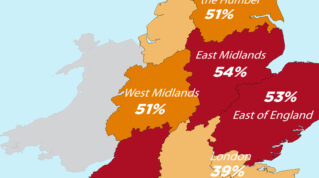The schools white paper clearly sets out a policy direction that will see MAT growth stimulated through the integration of further local authority-maintained schools into MATs. The proposed legislation will allow regional schools commissioners (RSCs) to issue mandatory conversion notices to those schools with more than one successive ‘Requires Improvement’ judgment from Ofsted, but what positive incentives are there for all the other schools?
Regardless of any moral or legal obligations for a school joining a MAT, the number one reason should always be to provide an improved quality of education and improved pupil outcomes. Unfortunately, parochial factors are likely to come into play from the various school stakeholders, including headteachers, who may feel their autonomy and self-determination could be eroded within the structure of a MAT.
And they’re right to some extent. It is the MAT governance hierarchy that determines the operating framework with trust members at the top of the tree. Trustees follow, while schools report to them through their headteacher reports to the trust board. This reporting structure applies regardless of any devolved authority to individual schools or headteacher under schemes of delegation. Ultimately, it is the board who are responsible for the MAT as company directors and charity trustees.
As a result of this MAT governance framework, it is no surprise that headteachers may have a number of concerns about joining a trust and the impact that might have on their level of autonomy. But on the positive side of the equation, MATs offer a level of support that standalone schools often don’t have access to. This includes the provision of a range of central services that are more cost-effective because they spread fixed costs across a number of schools.
Realistically, saving a few thousand pounds is hardly likely to be sufficient to attract a headteacher or board of governors to join a MAT. Additional positive aspects could, though. For example, a MAT can provide a school with a range of improvement services covering school curriculum, improved behaviour and attendance policies and, crucially, the backing of a large (and more remote) leadership team. But headteachers of ‘Good’ or ‘Outstanding’ schools are much less likely to need these services, and if they do, it is unlikely to be at the perceived expense of losing their decision-making powers.
Unfortunately, parochial factors are likely to come into play
Furthermore, the disparate stakeholder positions in schools and MATs don’t really support a school joining a MAT of their own volition without an incentive. So what incentives are left that could drive the delivery of this policy?
One option is career progression. Where a MAT CEO is retiring, a headteacher might be tempted to join on the basis that the role will be available to them. Similarly, there is scope to create trust-level positions that would represent a promotion for a headteacher who otherwise has already reached the top of the ladder in their context. But should the future of a whole community’s asset really be decided by the career ambitions of one person, even if that person has delivered an ‘Outstanding’ school for that community?
In the end, successful integration of a maintained school into a MAT is more likely to occur when there is a clear alignment of the mission, vision, ethos and values between school and MAT. The meanings of these words may be vague and subject to individual interpretation, and determining what they look like in practice is no easy task; but coming to that understanding is the best shot a school and MAT have at a smooth transition. It is vital for all parties to get under the skin of each other’s organisations.
Having said that, schools and MATs are unlikely even to begin that process if other incentives are not there – or rely heavily on the advances of MATs to even open a discussion.
For these reasons, the ambitions of the schools white paper will remain a distant destination unless incentives are re-thought. Headteachers value what autonomy they have, and as long as joining a MAT is seen as a loss of that, the climate will remain hostile – no matter the other tangible benefits on offer.
















Your thoughts